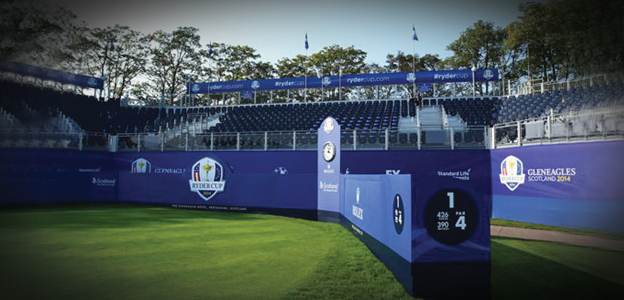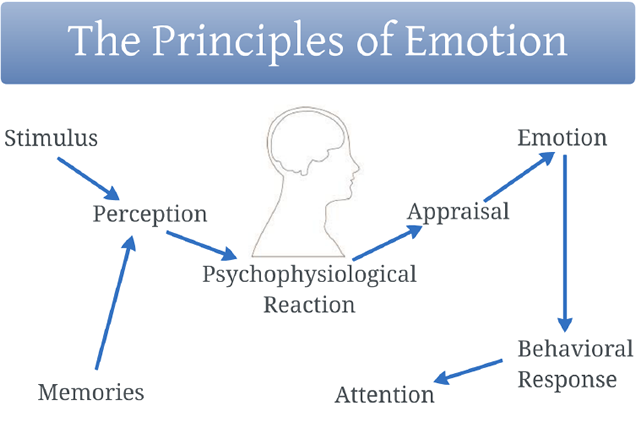IMPROVE MY GAME
Articles
Under Pressure
Fri Sep 26, 2014 by Dr. Bhrett McCabe

With the Ryder Cup this weekend, there is extra attention being paid to the emotional state of the players. Given the international pressure of the event and the historical significance, it is no question why the players that can manage their emotions throughout the three day event will have the greatest chance for success. As Dave Phillips indicates in his article from June 2013, we are learning more and more about the emotional capabilities of players under intense conditions.
I remember my appearance at the College World Series (CWS) at LSU. In 1994, ESPN would only televise a few select games of the CWS live and because we were the defending national champions, our game was live across the world. With 24,000 fans in the stadium, I was called in to pitch in the top of the 6th inning. After my warm-up pitches, the enormity of the situation hit me – aggressively. As I stood behind the mound, I thought about watching the CWS with my dad and dreaming of playing at the famed Rosenblatt Stadium. Right then, I felt the flood of emotions and anxiety, and the stadium started to spin. A remarkable phenomena that only happens in Hollywood movies. In addition, I suddenly felt the need to use the restroom. I don’t know how I got my first pitch to home plate, but my second pitch woke me up. It returned off the bat and whizzed by my left ear. When I turned around and saw it rolling into centerfield. The fear was gone and I now I was ready to pitch. I did well even though we lost the game. The emotion was a flood that I did not do well handling at first.
What I was feeling is what we refer to as a Primary Emotion. Primary emotions originate from the primal and ancient regions of the brain, namely the amygdala, and alert the fear networks or other ancillary emotional structures. Those primary emotions are reactionary and in direct relation to what you are experiencing in your environment. Unfortunately, they are not the problem. When athletes start having emotions about their emotions, namely about their ability to handle a difficulty or rise up to a challenge, they experience Secondary Emotions. For instance, a player gets nervous about actually being nervous, perceiving the situation as not only a threat from the event, but a threat to their ego because they are afraid they cannot handle the situation. The fact that you are nervous in a big event or an elite player is nervous about the Ryder Cup is to be expected, but the problem originates when you add the secondary emotion. Learn to be aware of the secondary emotion.
All emotion, namely the primary emotion, are natural to a variety of stimuli in the environment. Please see the attached Cycle of Emotions that I share with my players. When I am working with players, I try to get them to understand that the fact that they are experiencing emotions is a good thing. Do not judge them, but instead, learn from them and more importantly, learn to use them to change your behavior. As you can see by the Cycle, all emotion leads to a behavior. We cannot perceive the stimuli any different, but we can learn to appraise it differently. Instead of seeing it as a threat to stand on the first tee in front of your friends, see it as an opportunity to do what you enjoy doing. That difference in your appraisal will likely lead to a different behavioral outcome.

When working with elite players, I try to have them journal what they learned from their emotions and the situations that they experienced while in the heat of the moment. I have found that the action of journaling is associated with better emotional insight.
As far as training under high emotional states, it is important that you challenge yourself in practice. I will be presenting this exact paradigm at the World Golf Fitness Summit so please attend for some novel ways of training.
If you cannot attend, here are a few tips to handle elevated emotional states in competition:
- A – Be Aware of the fact that you are in a high emotional state and what the trigger is for you. Is it the circumstances, your swing, or the fact that you are excited to be playing golf? That is the most important thing is to recognize that you experiencing some elevated heart rate, shortened breathing, and probably a fast behavioral walk or talk.
- B – BREATHE Diaphragmatic breathing is such a great tool for reducing the elevated emotional state. I know it sounds soft to say breathe, but the brain needs oxygen to function and it so feed your brain. Take three deep breaths and focus on a spot on the ground to clear your mind.
- C – COMMIT Commit to the next shot and accept the fact that you are a bit excited or anxious. Under high emotional states, players often fail to commit and therefore, bring more problems their way. Commit to the shot and commit to the emotions that you are feeling. There is no reason to add additional secondary emotions on top of it.
Enjoy the Ryder Cup and GO USA!!!!!!

Bhrett McCabe, PhD is a licensed clinical psychologist and sports and performance psychologist in Birmingham, AL. Level 1 TPI Certified, he consults with players on the PGA and LPGA tour and is the Sports Psychologist for The University of Alabama Athletic Department. A four year letterman at Louisiana State University in baseball, he was a member of two NCAA National Championship teams and three Southeastern Conference championship teams. He completed his training in clinical psychology with a specialization in behavioral medicine/health psychology, and completed his internship at the Warren Alpert Medical School of Brown University in Providence, RI. He owns The MindSide, LLC, a performance consulting organization and can be found at www.bhrettmccabe.com
